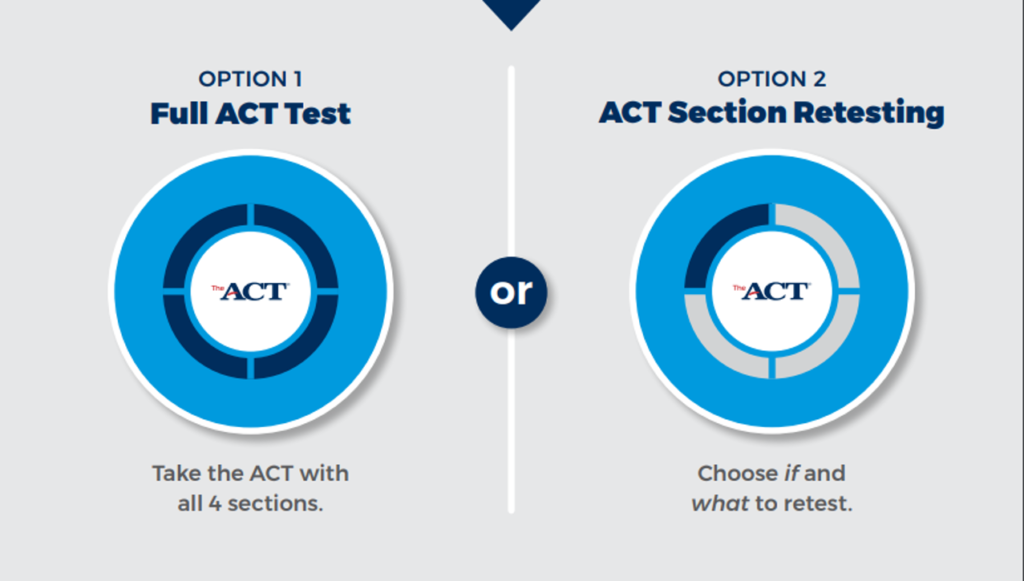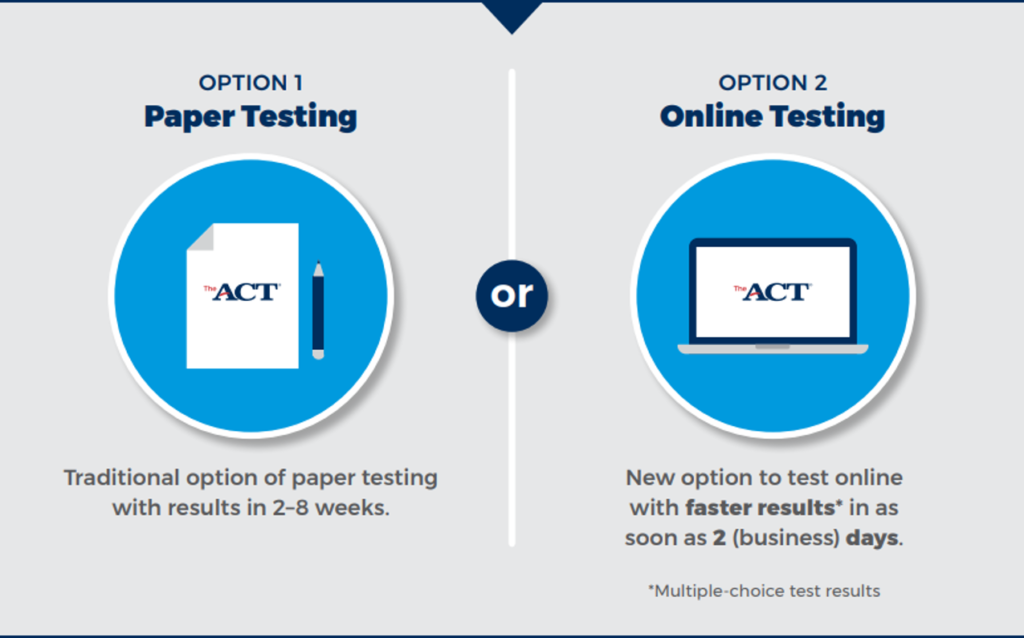ACT Major Reform!
Beginning September 2020, the ACT is introducing ACT Section Retesting, ACT Superscoring, and faster results with ACT Online Testing on national test dates.
These new options offer students more choices, a better experience, and greater confidence that their ACT test scores best reflect their hard work, overall academic achievement, and potential for success throughout their lives.
1. Section Retesting
Section retesting gives students the opportunity to showcase their skills and accomplishments gained over a lifetime and not only their test-taking abilities on one particular day.
ACT Section Retesting, which gives students the opportunity to retake one or more single-section tests to best show their knowledge, helps students focus their study efforts solely on the areas in which they want to improve their scores.

Section retesting will be available to all students who have taken the full ACT test. It is the same test – just one section or subject at a time. Section retests are identical in the content covered, timing, and the number of questions for each ACT section test. Section retesting will be offered seven times a year, on the same dates as the national ACT test. Students may take up to three section retests on any one test date, though there are no limits on the number of times a student may take a retest.
2. Superscoring
The Superscore reports the highest possible composite score across multiple ACT tests and ACT Section Retests. It calculates the average of the four best subject scores from each of the student’s ACT test attempts.

As an organization grounded in research, the ACT listen and respond appropriately when new information comes to light. Over the last two years, they’ve been investigating whether superscoring is a fair and valid practice.
The ACT’S findings surprised them: it was revealed that superscores were more predictive of how students would perform in their college courses than other scoring methods. The ACT’s concern that superscore would overestimate students’ academic preparation levels were unfounded based on the data from extensive research.

Colleges set their own policies regarding superscoring. However, the ACT will supply them at least one full composite score with each superscore, plus all of the scores from the test events that are part of the superscore composite. The ACT encourage colleges and university to consider adding superscoring to their score-use policy because, as our research shows, superscores are just as predictive – if not more predictive – of first-year grades than other scoring methods.
3. Online Testing
To better align with how students learn and the comfort many of them feel taking tests online, starting in September 2020, students can choose to take the ACT test online or on paper.

Students who take the test online get faster test results. In fact, their multiple-choice scores and the ACT composite score will begin to be reported as soon as two business days after the test date, allowing them and the schools and scholarships to which they apply to make better, more informed and timely decisions.
Offering online testing allows the ACT to better meet the needs of today’s students and provide them with greater flexibility, choice, and opportunities. By doing so, the ACT are able to achieve their mission to help ALL learners achieve education and workplace success.
Online testing takes place only at designated testing centers on desktop computers or other devices provided for them. The ACT has been offering online testing in schools since 2016 and in international test centers since 2018. They have developed a very rigorous protocol to ensure that their national test centers are set up to deliver the test online.
source: ACT.org
